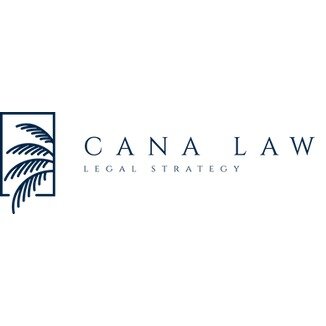Best Real Estate Lawyers in Punta Cana
Share your needs with us, get contacted by law firms.
Free. Takes 2 min.
Free Guide to Hiring a Real Estate Lawyer
List of the best lawyers in Punta Cana, Dominican Republic
About Real Estate Law in Punta Cana, Dominican Republic
Punta Cana, a popular tourist destination known for its stunning beaches and vibrant culture, is also a hotspot for real estate investment. The area's real estate market offers various opportunities, including beachfront properties, vacation rentals, and luxury resorts. Real estate law in Punta Cana is defined by the national legal framework of the Dominican Republic, which governs property transactions, ownership rights, and foreign investment. Understanding these laws is essential for anyone considering buying or selling real estate in the region.
Why You May Need a Lawyer
Real estate transactions in Punta Cana can be complex, involving significant financial commitments and legal requirements. Here are some common situations where legal assistance may be necessary:
1. Purchasing a property: A lawyer can help navigate the local legal system, ensuring that all documents and contracts are in order.
2. Selling a property: Legal advice is crucial to ensure that the sale complies with local regulations and that all taxes and fees are appropriately managed.
3. Property disputes: A legal expert can help resolve conflicts related to property boundaries, ownership, or breaches of contract.
4. Foreign investment: Foreigners buying property need to understand specific regulations and obtain the necessary permits. A lawyer can guide you through this process.
Local Laws Overview
Punta Cana is subject to the real estate laws of the Dominican Republic, which include the following key aspects:
- Property Rights: Dominican law recognizes and protects private property rights. It allows both locals and foreigners to own property.
- Due Diligence: Before purchasing property, conducting thorough due diligence, often facilitated by a lawyer, is crucial. This includes verifying the property's legal status and ensuring no encumbrances exist.
- Taxes and Fees: Property purchase in Punta Cana involves various taxes, such as the Property Transfer Tax (approximately 3% of the property's market value). There are also annual property taxes to consider.
- Title Insurance: This is advisable to protect against defects in the title or unforeseen legal challenges to property ownership.
Frequently Asked Questions
What is the process for buying property in Punta Cana?
The process involves selecting a property, making an offer, conducting due diligence, signing a Promise of Sale contract, and completing the final transfer of title. Engaging a lawyer is recommended to handle these steps effectively.
Can foreigners buy property in Punta Cana?
Yes, foreigners can purchase property in the Dominican Republic, including Punta Cana. However, specific legal procedures and regulations must be strictly followed.
What costs are associated with buying property in Punta Cana?
Costs include the property's purchase price, legal fees, taxes (such as the 3% transfer tax), notary fees, and realtor commissions, if applicable.
Do I need a real estate agent?
While not legally required, a real estate agent can offer valuable insights and assistance with property selection and negotiation.
What should I know about financing a real estate purchase?
Financing is available through local banks, but terms may differ for foreigners. Working with a lawyer or financial advisor can help in understanding your options.
What is due diligence, and why is it important?
Due diligence involves researching the property's legal status, verifying titles, and ensuring no encumbrances. It is a critical step to avoid legal complications or financial loss.
How are property disputes resolved?
Property disputes can be resolved through negotiation, mediation, or legal proceedings. Experienced lawyers typically handle these processes.
What taxes do I need to pay on my property in Punta Cana?
Expect to pay a 1% annual property tax over an exempt amount, along with transfer taxes when purchasing a property.
Can I rent out my property as a vacation rental?
Yes, many property owners rent their properties to tourists. It's important to comply with local regulations and taxation requirements.
Is title insurance necessary when buying property?
While not mandatory, obtaining title insurance is recommended to protect against any potential legal issues with property ownership.
Additional Resources
- Dominican Republic National Land Registry offers resources and services related to property titles and registrations.
- Legal Bar Association of the Dominican Republic can help locate licensed attorneys specializing in real estate law.
- Punta Cana real estate firms often provide market insights and connect clients with reputable lawyers.
Next Steps
If you require legal assistance for real estate in Punta Cana, start by consulting with a local real estate attorney. Ensure they are experienced in handling property transactions and familiar with matters involving foreign clients. Gather all relevant documents and details about the property in question. Professional legal advice will ensure compliance with local regulations, protecting your investment and interests effectively.
Lawzana helps you find the best lawyers and law firms in Punta Cana through a curated and pre-screened list of qualified legal professionals. Our platform offers rankings and detailed profiles of attorneys and law firms, allowing you to compare based on practice areas, including Real Estate, experience, and client feedback.
Each profile includes a description of the firm's areas of practice, client reviews, team members and partners, year of establishment, spoken languages, office locations, contact information, social media presence, and any published articles or resources. Most firms on our platform speak English and are experienced in both local and international legal matters.
Get a quote from top-rated law firms in Punta Cana, Dominican Republic — quickly, securely, and without unnecessary hassle.
Disclaimer:
The information provided on this page is for general informational purposes only and does not constitute legal advice. While we strive to ensure the accuracy and relevance of the content, legal information may change over time, and interpretations of the law can vary. You should always consult with a qualified legal professional for advice specific to your situation.
We disclaim all liability for actions taken or not taken based on the content of this page. If you believe any information is incorrect or outdated, please contact us, and we will review and update it where appropriate.
Browse real estate law firms by service in Punta Cana, Dominican Republic
Punta Cana, Dominican Republic Attorneys in related practice areas.















